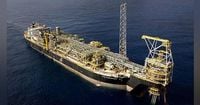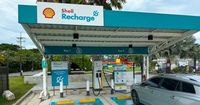Shell, one of the world’s largest energy companies, is making headlines on several fronts this August, with major operational changes, strategic shifts in its U.S. electric vehicle (EV) charging business, and a high-profile research initiative in Brazil. Each of these moves reflects the company’s ongoing efforts to adapt to a rapidly changing energy landscape, balancing traditional oil operations with investments in cleaner technologies and digital innovation.
On Friday, August 15, 2025, Shell confirmed it would begin a planned overhaul at its massive Norco, Louisiana, refinery ahead of schedule, as reported by Reuters. The Norco facility, with a capacity of 231,827 barrels per day, is a critical hub for gasoline production in the United States. The overhaul specifically targets the resid catalytic cracking unit (RCCU), a workhorse capable of processing 112,000 barrels per day. Originally, this maintenance was slated for September 15, but an unexpected leak forced Shell’s hand, prompting an immediate start.
"Shell Norco Energy and Chemicals Park will begin a planned maintenance turnaround on the resid catalytic cracking unit (RCCU), among other units, ahead of schedule. Work will begin on Friday, August 15, 2025," stated Shell spokesperson Krista Edwards in an email to Reuters. The overhaul is expected to last about 50 days and also involves shutting down the 14,800-bpd alkylation unit, the 40,000-bpd naphtha hydrotreating unit, and the GO-1 ethylene unit.
The RCCU is vital for converting resid crude oil into unfinished gasoline, utilizing a catalyst under intense heat and pressure. Meanwhile, the alkylation unit produces octane-boosting additives, and the hydrotreaters remove sulfur from motor fuels, ensuring compliance with U.S. environmental rules. These shutdowns, while routine in the industry, can ripple through fuel supply chains, potentially impacting gasoline prices and availability in the Gulf Coast region.
But Shell’s ambitions extend well beyond traditional refining. In a significant pivot, the company has announced a strategic shift in its U.S. EV charging business. Shell is shutting down Volta Inc., the EV charging network it acquired in 2023, and refocusing its efforts on building DC fast charging infrastructure at Shell-branded stations and standalone hubs. According to a statement provided to CSP, Shell views this approach as “a more scalable and profitable model” compared to Volta’s retail-based network, which was present at shopping centers, grocery stores, and pharmacies across 31 states.
Operations of the Volta Media advertising platform will end by October 31, 2025, and all charging operations at Volta stations will cease by December 31, 2025. Shell is currently exploring whether Volta’s existing infrastructure can be transferred to other operators, a move that could soften the blow for drivers who rely on those chargepoints.
Shell’s new EV strategy is clear: prioritize DC fast charging at its own branded gas stations and dedicated EV hubs, especially in high-growth markets. “These changes are necessary to build a successful and scalable EV charging network that future generations can rely on and benefit from,” the company said, framing the move as part of its broader energy transition strategy. Retail media, once a selling point for Volta’s ad-supported charging model, is now off the table. Shell’s EV business will focus solely on charging infrastructure, not digital advertising.
Despite this shift, Shell’s U.S. EV investment “remains strong,” the company emphasized. The U.S. is still one of Shell’s seven global priority markets for EV investment, and the company continues to serve about 8 million customers daily at approximately 12,000 gas stations across 49 states, with nearly 200 convenience retail sites under its direct operation. Globally, Shell’s mobility sites draw around 32 million customers each day for fuels, EV charging, and other services—an enormous footprint that positions the company to influence the future of transportation in the U.S. and beyond.
Meanwhile, investors have been paying close attention. Deutsche Bank AG dramatically increased its stake in Shell PLC Unsponsored ADR by a staggering 2,096.7% during the first quarter of 2025, now holding 1,217,115 shares valued at roughly $89.2 million, as reported in the company’s most recent 13F filing with the SEC. Other institutional investors, including Brighton Jones LLC, Barclays PLC, Allspring Global Investments Holdings LLC, PNC Financial Services Group Inc., and Merit Financial Group LLC, have also boosted their holdings in Shell in recent quarters. In total, institutional investors and hedge funds now own 28.6% of the company’s stock.
Shell’s stock traded at $71.84 on Friday, August 15, with a 50-day moving average of $71.39 and a 200-day average of $68.33. The company reported earnings per share of $1.42 for the quarter ending July 31, 2025, beating analyst estimates by $0.29, with revenue of $66.44 billion. The Board of Directors also authorized a $3.5 billion stock buyback plan on May 2, 2025, permitting the repurchase of up to 1.8% of shares through open market purchases. Shell’s payout ratio currently stands at 64.41%, and a quarterly dividend of $0.716 per share will be paid on Monday, September 22, 2025, to investors of record as of August 15.
Analysts remain divided on Shell’s prospects. According to MarketBeat.com, the stock has an average rating of “Moderate Buy” with a consensus price target of $78.64. Five analysts rate the stock as a hold, while ten recommend buying. Some, like Sanford C. Bernstein and Hsbc Global Res, have tempered their outlook, while others, such as Piper Sandler and Scotiabank, remain bullish.
While much of the focus is on Shell’s North American operations, the company is also making waves in Brazil. On August 15, Shell Brasil, MODEC Brasil, Shape Digital, and Unicamp launched a 36-month research and development initiative to enhance offshore safety using artificial intelligence (AI). Funded by ANP’s RD&I clause, the project will evolve Shape Reef, an AI-based process safety tool already deployed in Brazil, Mexico, and Africa, to detect degradation in safety barriers and gas leak risks in real time.
Olivier Wambersie, Director of Technology and Innovation at Shell Brasil, emphasized the importance of the initiative: “Safety is a non-negotiable asset for Shell Brasil. Investing in technology and innovation to improve risk management in offshore units is a central part of our operational excellence strategy. Partnerships like this allow us to anticipate failures, reduce uncertainties and increase the protection of people and the environment.”
This collaboration brings together MODEC’s expertise in floating production storage and offloading (FPSO) operations and Unicamp’s academic research to develop data-driven methodologies for risk estimation. The goal is smarter decision-making and safer offshore operations, building on Unicamp’s prior AI-based leak detection models and the Fuzzy BowTie methodology. Earlier in 2025, Petrobras also selected Shape Aura, Shape Digital’s AI-based, capex-free platform, to support emission reduction and energy efficiency.
Shell’s recent actions—whether in refining, EV infrastructure, financial performance, or digital innovation—underscore a company in transition, striving to balance its legacy businesses with the demands of a low-carbon future. The energy giant’s willingness to adapt, invest, and partner across continents may well determine its place in the evolving global energy landscape.





